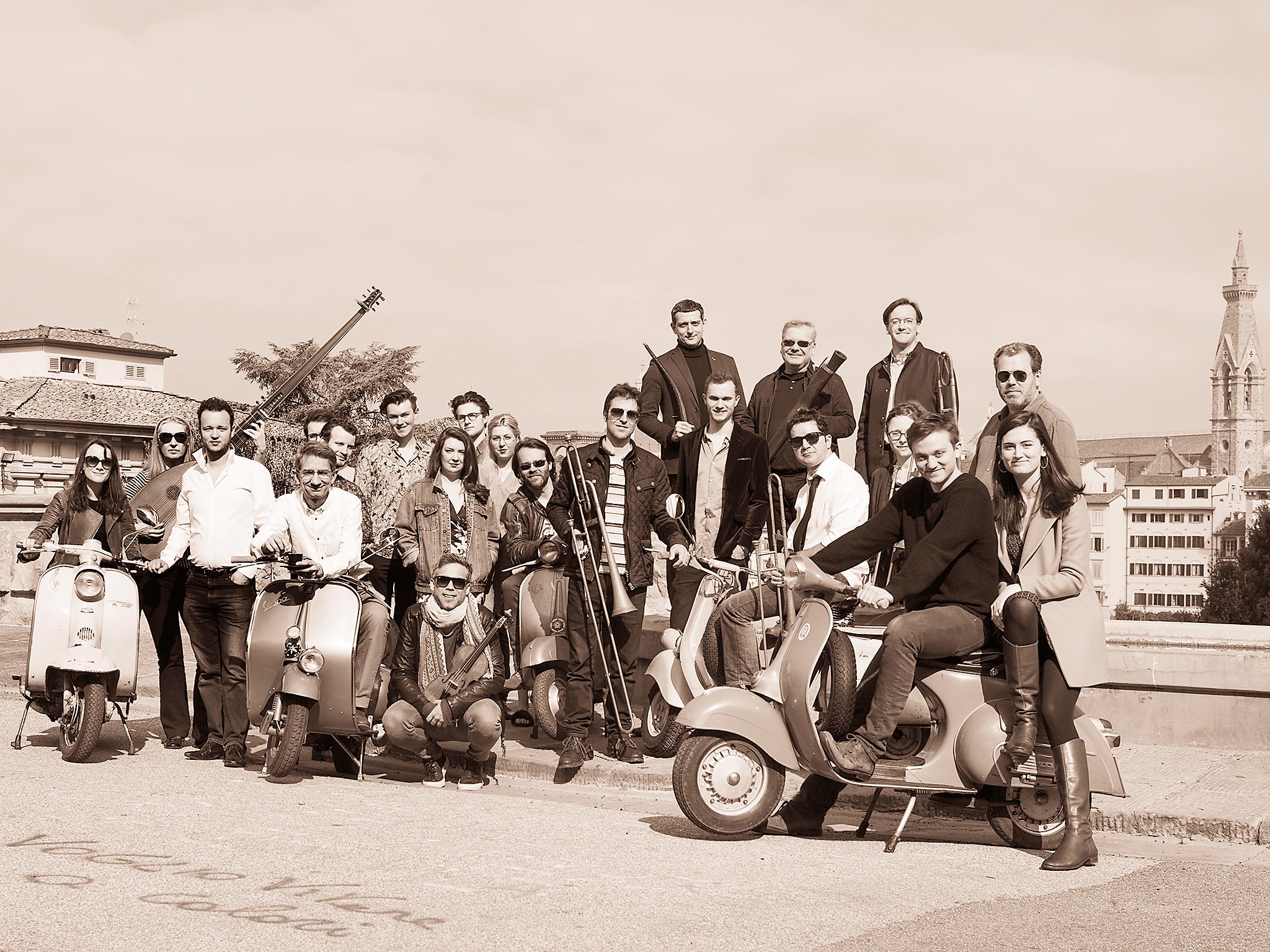L'Orfeo/ I Fagiolini, St John's Smith Square, London, review: For non-Italians, trying to read the text and translation and watch the stage doesn’t work
The British vocal ensemble founded by Robert Hollingworth performed Monteverdi's first opera in a semi-staging

Your support helps us to tell the story
From reproductive rights to climate change to Big Tech, The Independent is on the ground when the story is developing. Whether it's investigating the financials of Elon Musk's pro-Trump PAC or producing our latest documentary, 'The A Word', which shines a light on the American women fighting for reproductive rights, we know how important it is to parse out the facts from the messaging.
At such a critical moment in US history, we need reporters on the ground. Your donation allows us to keep sending journalists to speak to both sides of the story.
The Independent is trusted by Americans across the entire political spectrum. And unlike many other quality news outlets, we choose not to lock Americans out of our reporting and analysis with paywalls. We believe quality journalism should be available to everyone, paid for by those who can afford it.
Your support makes all the difference.It’s perpetually astounding that the first real opera should have sprung as perfectly formed it did from Monteverdi’s pen in 1607. Thomas Guthrie’s semi-staged L’Orfeo for Robert Hollingworth’s I Fagolini should by rights have provided another opportunity to appreciate this without the dictatorial drawbacks of a fully staged production.
Much took its cue from the first performance: nine singers doubling up their roles, the instrumentation – for which, exceptionally, an exact list survives – missing only the metal stringed chitarrone (too costly) and no second organs and harpsichords (lack of space), and the audience provided with a printed libretto. But for non-Italians, trying to read the text and translation and watch the stage all at the same time doesn’t work: one or other loses out, and the drama suffers.
Mathew Long’s flexible tenor made for a decent Orfeo, and certainly mezzo Ciara Hendrick’s Messaggiera at the opera’s fulcrum wrung every last exquisite drop of anguish from Euridice’s death. But another key moment, Orfeo’s meeting with ferrymen Caronte (Christopher Adams) whose bass should plumb the depths of Tartarus, somehow failed to thrill. Hollingworth’s sound world felt altogether too yin, not only in the string-dominated textures above ground but most damagingly in the low tessitura Monteverdi used to conjure the underworld.
Join our commenting forum
Join thought-provoking conversations, follow other Independent readers and see their replies
Comments